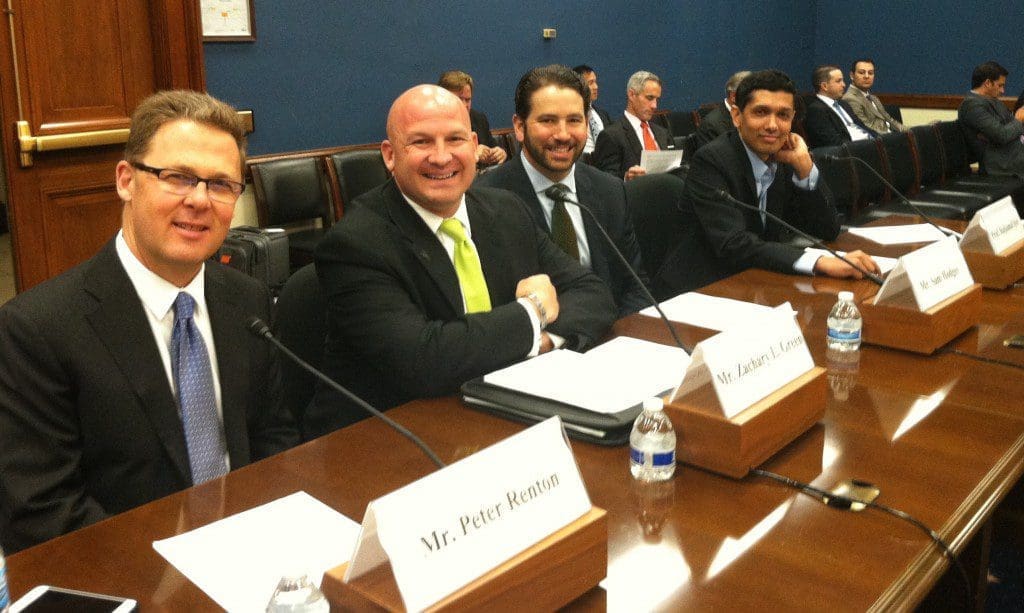It was an honor yesterday to appear at the hearing of the House Small Business Committee on Capitol Hill. Presided over by Committee Chairman Steve Chabot (R-Ohio) this was clearly an information gathering session where the congressmen and woman sought to educate themselves about this new industry. And while Renaud Laplanche testified before a House sub-committee in 2013 that was the first time peer to peer lending was the focus of a hearing.
Appearing before the committee were Professor Rajkamal Iyer, Associate Professor of Finance, MIT Sloan School of Management, Sam Hodges, Co-Founder and Managing Director, Funding Circle USA, Zachary L. Green, CEO/Founder, MN8 Foxfire, Cincinnati, OH and myself. We each provided a short testimony (you can read mine here) and then all the committee members had five minutes to ask questions.
One of the reasons I love small business lending for P2P is that it is supporting entrepreneurs while at the same time it is growing the pie of available capital. The oft-stated point was made that banks are not lending to small businesses nearly as much as they used to and so these entrepreneurs have been forced to look at non-traditional sources of capital.
While many of the questions were pretty basic as the committee members looked to gain some perspective there were clearly a few issues that were at the forefront of their minds. Being a congressional hearing they were interested in the regulatory challenges facing platforms today as well as fraud – how much is there and how is it being prevented.
Sam Hodges shared that the federal regulatory framework we operate in today was mostly written 75 years ago and didn’t anticipate the Internet and so an update to these laws would be helpful.
There were some concerns about the impact of institutional investors on this asset class. This is a very common question and the committee members were concerned that banks who refused to lend to small business were somehow circumventing the system. But I countered that this was not the case, those same banks were not coming in the back door and circumventing regulations. While there is huge institutional investor interest many (maybe even most) of these investors have not invested in any kind of lending product before.
There were several questions on fees and pricing. Some members were concerned about borrower protections and the fact that some borrowers may not be well informed as to fees. While it is true that there is no uniformity on fees among the various types of loans (term loans, lines of credit, merchant cash advance, invoice finance for example) among the major peer to peer lenders there is a real effort to provide transparency. And that message came through loud and clear.
When asked about any policy recommendations Sam Hodges brought up the concept of self-regulation as the best way forward and he indicated that they are working with other players in the space to make sure they all have responsible standards around disclosure, interest rates being charged and collection and servicing practices. This is where problems have occurred in the past.
One of the most interesting questions that we were asked during this hearing was about disaster recovery loans – the example given being Hurricane Sandy. It takes too long for the SBA and FEMA to process small business loans during a disaster. These businesses have insurance but despite that 40% of small businesses do not reopen after a major natural disaster. While I don’t think many platforms have thought seriously about this I put the idea out there that this industry is far better positioned to react quickly in times like this than the traditional banking system.
Overall, it was a positive experience testifying before the committee and I am glad I accepted their invitation. I think it is important that we engage with Washington as much as possible, I know both Lending Club and OnDeck Capital now have senior regulatory executives (they both attended this hearing) based in Washington engaging in dialogue with lawmakers and government agencies.
You can watch the full hearing below on the Committee’s YouTube channel.


